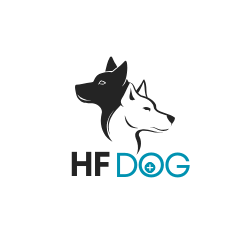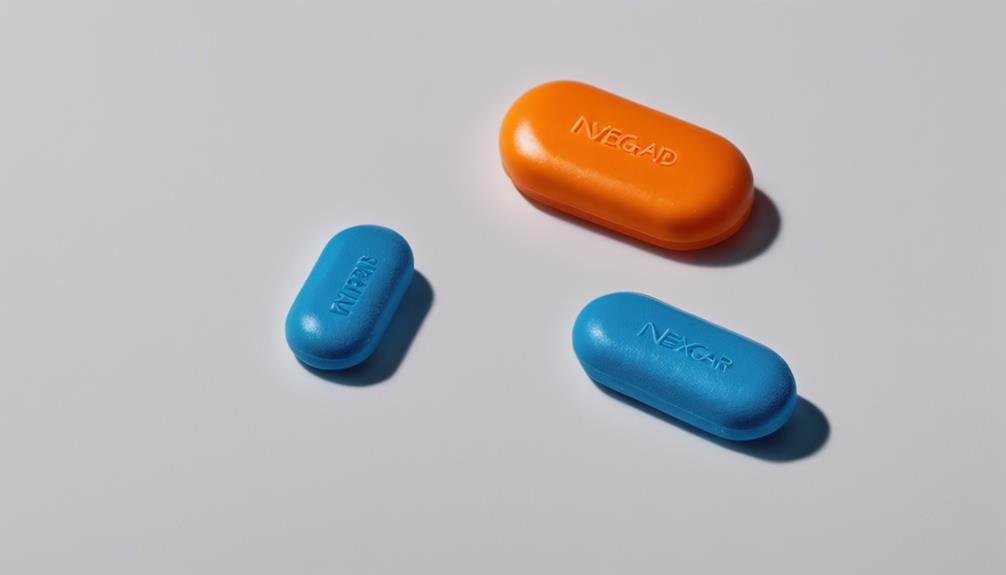NexGard Neurological Side Effects: A Complete Guide
As a pet owner, you trust that the medications you give your furry companion are safe and effective. However, have you ever considered the potential neurological side effects of NexGard? Understanding the complete spectrum of possible impacts on your pet's nervous system is crucial for providing the best care. Stay tuned to uncover essential information that will empower you to make informed decisions about your pet's well-being.
Key Takeaways
- Recognize signs like tremors, seizures, ataxia, and incoordination post-NexGard.
- Immediate veterinary consultation is crucial for pets showing neurological symptoms.
- Managing seizures requires prompt vet assistance, diagnostics, and proper medication.
- Stress-free environments and regular vet check-ups aid in tremor prevention.
- Urgently seek veterinary care for concerning signs to prevent complications and ensure the best outcome.
Understanding NexGard's Neurological Impact
If you have noticed any unusual behavior in your pet after administering NexGard, it's crucial to understand the potential neurological impact of this medication. NexGard is a popular flea and tick treatment for pets, but like any medication, it can have side effects. In some cases, NexGard has been associated with neurological issues in pets, which can manifest in various ways.
The active ingredient in NexGard, afoxolaner, works to kill fleas and ticks by overstimulating their nervous systems. While this is effective in combating these pests, it can also potentially affect your pet's neurological system. Some pets may be more sensitive to these neurological effects, leading to symptoms such as tremors, seizures, or changes in behavior.
It's essential to monitor your pet closely after administering NexGard and be vigilant for any signs of neurological side effects. If you notice anything concerning, contact your veterinarian immediately. Understanding the neurological impact of NexGard can help you make informed decisions about your pet's health and well-being.
Signs of Neurological Side Effects
You may observe various signs indicating neurological side effects in your pet after administering NexGard. These signs can include but aren't limited to tremors, seizures, ataxia (loss of coordination), lethargy, and incoordination. Your pet may exhibit unusual behaviors such as pacing, restlessness, or excessive drooling. It's essential to pay close attention to any changes in your pet's behavior or physical condition after giving them NexGard.
Additionally, you might notice your pet experiencing muscle twitching, weakness, or even more severe symptoms like difficulty breathing. Some pets may show signs of hypersalivation or dilated pupils. If you observe any of these signs, it's crucial to contact your veterinarian immediately for further guidance.
Keep in mind that these symptoms could be indicative of a neurological issue triggered by NexGard. Monitoring your pet closely and being proactive in seeking veterinary care can help in managing any potential neurological side effects promptly. Remember, your pet's well-being is a top priority, so always err on the side of caution when it comes to their health.
Managing NexGard-Related Seizures
To effectively manage NexGard-related seizures in your pet, promptly seek veterinary assistance for proper evaluation and treatment. Seizures can be a concerning side effect, and it's crucial to have your pet assessed by a professional. During the evaluation, your veterinarian may conduct tests to determine the cause and severity of the seizures. Treatment options will depend on the findings but may include medication to help control the seizures.
Once your pet has been diagnosed and treatment has begun, it's essential to follow your veterinarian's instructions diligently. Administer medications as prescribed and keep track of any changes in your pet's condition. Monitoring your pet closely can help detect improvements or any potential side effects of the treatment.
In addition to medical treatment, creating a safe environment for your pet is vital. Remove any objects that could harm them during a seizure and ensure they're in a secure area where they can't injure themselves. By working closely with your veterinarian and providing a safe space for your pet, you can effectively manage NexGard-related seizures.
Preventing and Minimizing Tremors
Prevent and minimize tremors in your pet by ensuring a stress-free environment and providing regular check-ups with your veterinarian for proper monitoring. Stress can exacerbate tremors, so create a calm space for your pet to relax. Keep loud noises to a minimum and maintain a consistent routine. Additionally, monitor your pet's reactions after administering NexGard and note any unusual symptoms promptly.
It's essential to maintain open communication with your veterinarian. Regular check-ups allow for close monitoring of your pet's health, enabling early detection of any potential issues. Your vet can provide guidance on managing tremors and adjust treatment plans if needed.
Proper nutrition plays a crucial role in your pet's overall health. Ensure they have a balanced diet and stay hydrated. Adequate hydration supports muscle function and can help reduce the severity of tremors.
Seek Immediate Veterinary Care
In cases of NexGard-induced neurological side effects, promptly seek immediate veterinary care for your pet's well-being. If you notice any concerning signs such as seizures, tremors, disorientation, or any other abnormal behavior after administering NexGard to your furry companion, don't hesitate to contact your veterinarian right away. These symptoms could indicate a serious adverse reaction that requires urgent attention. Your veterinarian will be able to assess the situation, provide appropriate treatment, and offer guidance on how to manage the side effects effectively.
Remember that early intervention is crucial in such cases to prevent any potential complications and ensure the best possible outcome for your pet. Delaying seeking veterinary care could worsen your pet's condition and lead to further health issues. By acting swiftly and seeking professional help, you're prioritizing your pet's health and well-being. Your veterinarian is equipped to handle these situations and will work to alleviate your pet's symptoms and address any concerns you may have. Your proactive approach can make a significant difference in your pet's recovery process.
Frequently Asked Questions
Can Nexgard Cause Long-Term Damage to the Nervous System?
Yes, NexGard can potentially cause long-term damage to the nervous system. It's important to be aware of any signs of neurological side effects and consult your veterinarian if you have concerns about your pet's health.
Are There Any Natural Remedies to Relieve Nexgard-Induced Tremors?
If you're looking for natural ways to ease NexGard-induced tremors, consider options like chamomile tea or lavender essential oil for relaxation. Always consult with a vet for guidance on complementary therapies to support your pet's well-being.
How Soon After Administering Nexgard Can Neurological Side Effects Occur?
After giving NexGard, neurological side effects might occur within hours to a few days. Keep an eye out for symptoms like tremors, seizures, or disorientation. Contact your vet immediately if you notice any concerning signs.
Can Certain Dog Breeds Be More Prone to Neurological Side Effects From Nexgard?
Certain dog breeds may be more prone to neurological side effects from NexGard. It's crucial to monitor your furry friend closely after administering the medication. If you notice any concerning symptoms, contact your veterinarian immediately for guidance and support.
Is There a Specific Age Range of Dogs More Susceptible to Seizures After Using Nexgard?
You might be wondering if there's a particular age range that could make dogs more prone to seizures after using NexGard. Generally, dogs of any age can be susceptible to seizures post-NexGard use.
Conclusion
In conclusion, being aware of NexGard's potential neurological side effects and monitoring your pet for any concerning symptoms is crucial for their well-being.
By staying vigilant, seeking prompt veterinary care, and creating a stress-free environment, you can help minimize risks and ensure early intervention if needed.
Remember, your pet's health and safety should always be a top priority.








